5 Jobs for Dogs
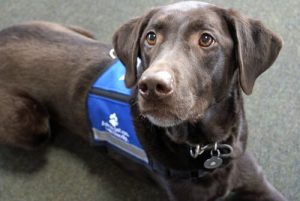
Dogs are truly amazing and can do so much more than just be pets. They like working, and if they’re well-trained they can also be amazing workers. So, in today’s article, you can look at a few examples of good jobs for dogs.
Jobs for dogs
Dogs always want to help out, and their obliging personality makes it more than possible for them to do all kinds of jobs. Some of these jobs require a lot of physical strength, innate abilities, and training, but others are much simpler.
Plus, with a bit of training, just about any dog can work. You can even get your dog to help you with the chores! If the dog is not too young, too old, or in good shape, it can always learn new skills.
One thing is certain: dogs can work every day. They cheer us up on bad days, help us relax after work, or get us out of our couch-potato routines and have us take them on walks. They might not get paid, but they try to improve every single day, and that’s what really counts.
1. Sniffing Out Drugs
This is one of the most well-known jobs for dogs. However, it’s also one of the hardest to train. They have to start as puppies, and they usually do it for most of their adult lives.
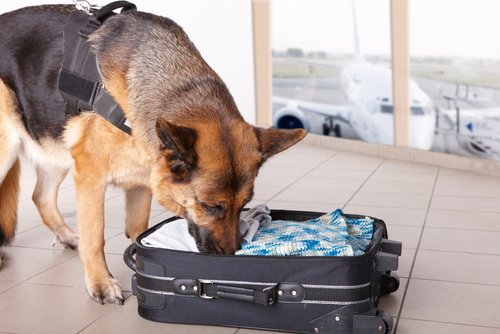
Drug-sniffing dogs might work on the street, at the airport, or in customs. They work for government agencies like the police or the army and they’re not house dogs. They only begin to live with a normal family once they’ve retired.
2. Search and rescue
Whenever there’s a natural disaster, a building collapse and people are trapped, or when someone disappears, these dogs can help find them. Whether it’s an earthquake in the city or a forest at night, they use their sense of smell and hearing to rescue victims.
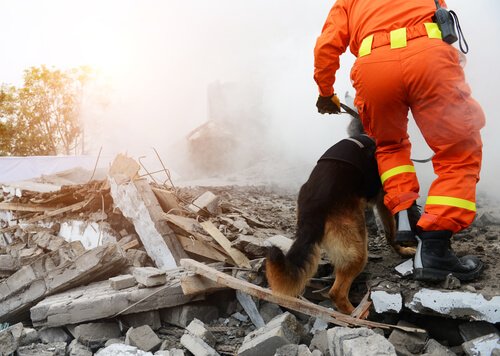
Just like drug-sniffing dogs, these dogs also start training at a young age and learn more skills throughout their lives. They develop an even better sense of smell and learn to work in extreme conditions: day and night, alone and around tons of people, and all kinds of other factors.
This isn’t a job any dog can do because it requires a dog that’s about to go through intense training, so when there’s a disaster only these dogs will be the ones going through all the rubble.
3. Detecting seizures and hypoglycemia
Here are two other important jobs for dogs. They can be a great help for people with epilepsy and diabetes. There are also hospitals that train dogs to detect tumors and other health conditions.
Dogs that assist people with epilepsy warn them when a seizure is about to take place and help them when it happens. They stay calm and use their body to stop the person from harming themself during the seizure. See video below:
Hypoglycemia detecting dogs can smell the blood sugar levels in people with diabetes. So, they warn them when their sugar levels are too high or too low. That way, people with diabetes know whether to check their blood, take their medication, or just eat something.
4. Protecting abuse victims
A pilot program in Spain trained some dogs to live alongside abuse victims. These women’s ex-partners had restraining orders, but the police felt they still needed some extra protection.
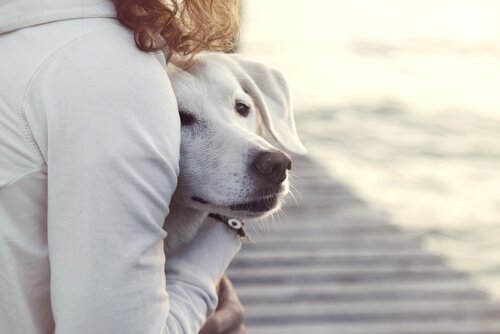
Their job is to be around these women as they go through their days. They’re specially trained guard dogs, and only the women know the signals to set them on alert if they feel threatened. Luckily, most of these dogs haven’t had to act too many times. It seems like their biggest contribution is helping these women have a public life without fearing something bad is going to happen to them.
5. Therapy dogs
This is one of the most passive, simple of all jobs for dogs. The main requirement for a dog to work in a hospital or nursing home is to be very friendly and tolerant.
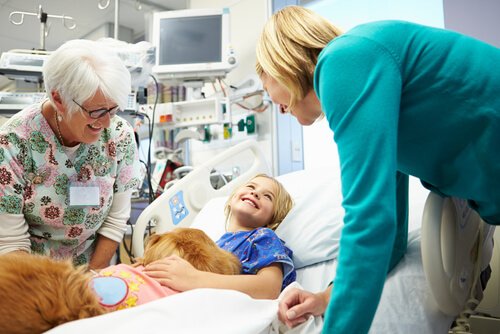
Of course, some dogs also receive training from a very young age, but a lot of rescues have all the necessary qualities to do this important task. Their main job is to bring joy to the patients with their simple presence, and it really works.
Research has shown that petting, looking at, or interacting with a dog reduces stress, boosts happiness and calmness, reduces blood pressure, etc…That’s why living with a dog can be so good for your health. As you’ve seen today, they can also help out in a ton of different ways.
Dogs are truly amazing and can do so much more than just be pets. They like working, and if they’re well-trained they can also be amazing workers. So, in today’s article, you can look at a few examples of good jobs for dogs.
Jobs for dogs
Dogs always want to help out, and their obliging personality makes it more than possible for them to do all kinds of jobs. Some of these jobs require a lot of physical strength, innate abilities, and training, but others are much simpler.
Plus, with a bit of training, just about any dog can work. You can even get your dog to help you with the chores! If the dog is not too young, too old, or in good shape, it can always learn new skills.
One thing is certain: dogs can work every day. They cheer us up on bad days, help us relax after work, or get us out of our couch-potato routines and have us take them on walks. They might not get paid, but they try to improve every single day, and that’s what really counts.
1. Sniffing Out Drugs
This is one of the most well-known jobs for dogs. However, it’s also one of the hardest to train. They have to start as puppies, and they usually do it for most of their adult lives.

Drug-sniffing dogs might work on the street, at the airport, or in customs. They work for government agencies like the police or the army and they’re not house dogs. They only begin to live with a normal family once they’ve retired.
2. Search and rescue
Whenever there’s a natural disaster, a building collapse and people are trapped, or when someone disappears, these dogs can help find them. Whether it’s an earthquake in the city or a forest at night, they use their sense of smell and hearing to rescue victims.

Just like drug-sniffing dogs, these dogs also start training at a young age and learn more skills throughout their lives. They develop an even better sense of smell and learn to work in extreme conditions: day and night, alone and around tons of people, and all kinds of other factors.
This isn’t a job any dog can do because it requires a dog that’s about to go through intense training, so when there’s a disaster only these dogs will be the ones going through all the rubble.
3. Detecting seizures and hypoglycemia
Here are two other important jobs for dogs. They can be a great help for people with epilepsy and diabetes. There are also hospitals that train dogs to detect tumors and other health conditions.
Dogs that assist people with epilepsy warn them when a seizure is about to take place and help them when it happens. They stay calm and use their body to stop the person from harming themself during the seizure. See video below:
Hypoglycemia detecting dogs can smell the blood sugar levels in people with diabetes. So, they warn them when their sugar levels are too high or too low. That way, people with diabetes know whether to check their blood, take their medication, or just eat something.
4. Protecting abuse victims
A pilot program in Spain trained some dogs to live alongside abuse victims. These women’s ex-partners had restraining orders, but the police felt they still needed some extra protection.

Their job is to be around these women as they go through their days. They’re specially trained guard dogs, and only the women know the signals to set them on alert if they feel threatened. Luckily, most of these dogs haven’t had to act too many times. It seems like their biggest contribution is helping these women have a public life without fearing something bad is going to happen to them.
5. Therapy dogs
This is one of the most passive, simple of all jobs for dogs. The main requirement for a dog to work in a hospital or nursing home is to be very friendly and tolerant.

Of course, some dogs also receive training from a very young age, but a lot of rescues have all the necessary qualities to do this important task. Their main job is to bring joy to the patients with their simple presence, and it really works.
Research has shown that petting, looking at, or interacting with a dog reduces stress, boosts happiness and calmness, reduces blood pressure, etc…That’s why living with a dog can be so good for your health. As you’ve seen today, they can also help out in a ton of different ways.
This text is provided for informational purposes only and does not replace consultation with a professional. If in doubt, consult your specialist.







